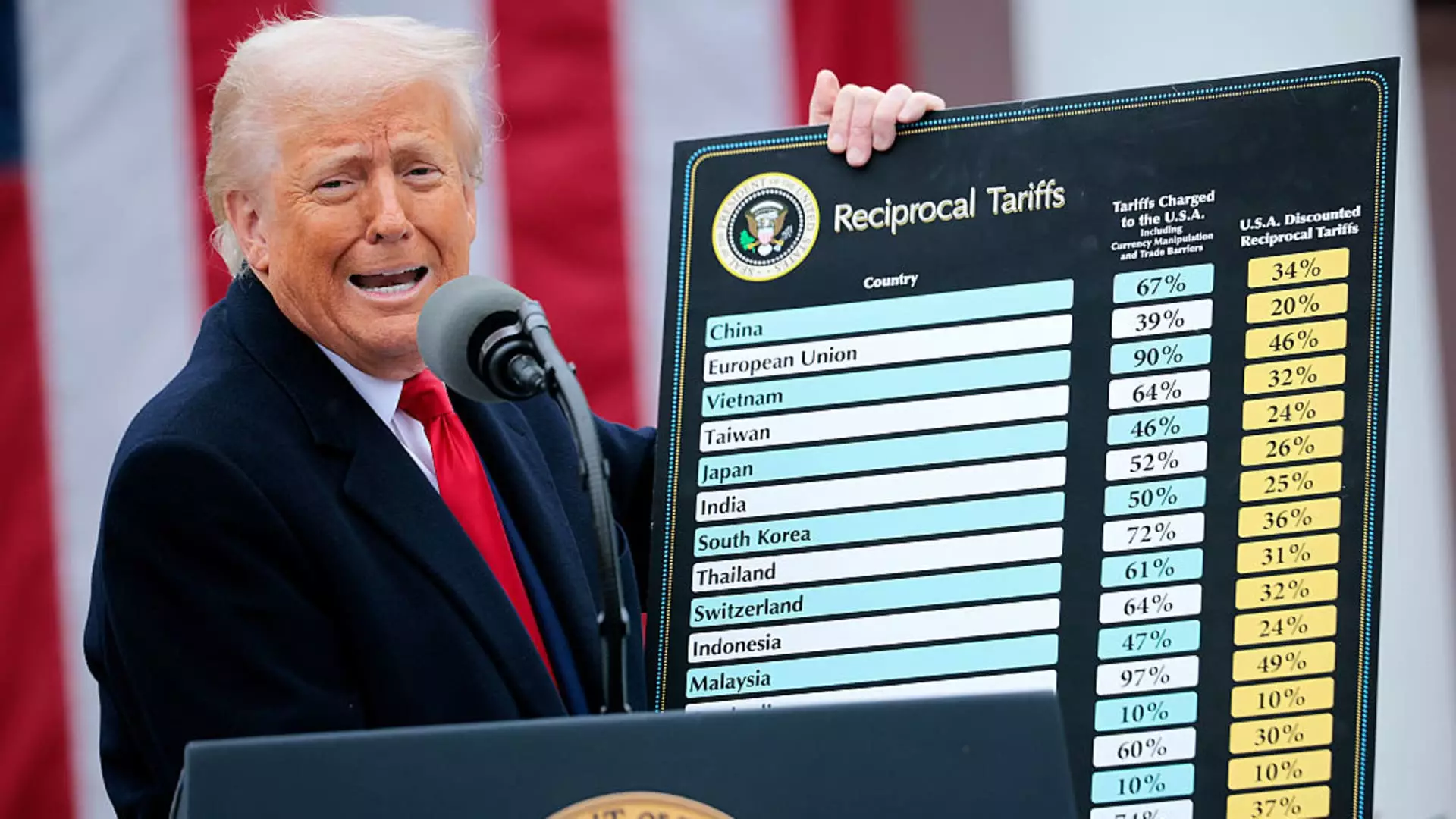In a stunning legal rebuke to the Trump administration, a federal court has taken a decisive stand against the president’s unilateral approach to economic policy by invalidating his reciprocal tariffs. This ruling marks a significant moment not just for legal precedent but for the broader implications it has on the international trade landscape. The judges pointedly remarked that the International Emergency Economic Powers Act (IEEPA), a 1977 statute oftentimes invoked for national security reasons, does not confer upon the president the expansive powers that Trump attempts to wield.
The court’s decision is a pivotal reminder that unchecked presidential power can lead to detrimental outcomes for both domestic businesses and international relations. By exceeding the boundaries of his authority, Trump set a dangerous precedent that could fundamentally reshape the dynamics of U.S. trade policy. When judges openly state that the “Worldwide and Retaliatory Tariff Orders exceed any authority granted to the President by IEEPA,” they highlight not just a legal misstep, but a concerning trend towards autocratic governance.
The Impact on Businesses
The ramifications of Trump’s tariff policies extend far beyond theoretical constitutional debates; they have real, tangible effects on American businesses. The lawsuit, initiated by five U.S. companies heavily reliant on imports, underscores that there is a human cost to the administration’s economic maneuvers. With tariffs imposed indiscriminately, businesses that rely on competitive pricing for raw materials can find themselves on precarious footing. This ruling serves as a crucial step in protecting these interests against a backdrop of economic instability and unpredictability propagated by reckless policymaking.
The courts didn’t merely focus on the plaintiffs; they declared Trump’s tariffs unlawful for “all” businesses, establishing a collective reprieve for American entrepreneurs. It sends a firm message: the rule of law and the principles of checks and balances must reign supreme over partisan ambition.
The Political Implications
The legal defeat is an iceberg tip, exposing the perilous waters of Trump’s broader economic agenda. The administration’s hasty imposition of tariffs is emblematic of a governing philosophy that prioritizes rhetoric over reason. The tariffs, launched amidst a wave of nationalistic fervor, now face the dual challenges of legal scrutiny and economic backlash. Amidst the backdrop of these increasingly burdensome duties, many are left to wonder how much longer Trump can persist in asserting authority that is not legally his to wield.
With the court mandating a permanent injunction against the tariffs, the implications stretch far beyond trade. They serve as a pivotal case study in accountability, contrasting starkly with the populist rhetoric that fueled Trump’s rise. In an era where facts often feel malleable to personal belief, the judiciary serves as a vital counterbalance to presidential overreach.
Trump’s administration now faces a crossroads. As the White House contemplates an appeal, the narrative becomes not just about tariffs, but about governance itself. Are we prepared to allow the whims of a leader to dictate economic fate, or will the rule of law continue to protect us from such arbitrary power? The question now looms larger than the economic measures themselves; it encompasses the very essence of democracy and accountability.


Leave a Reply